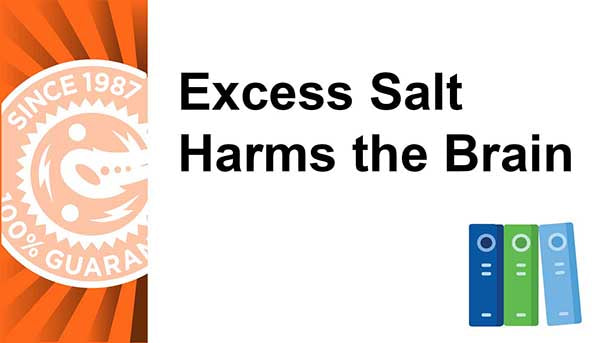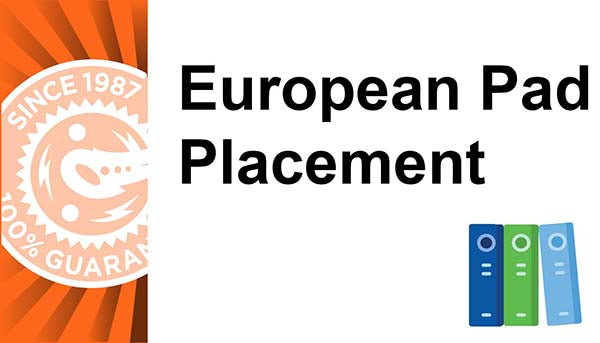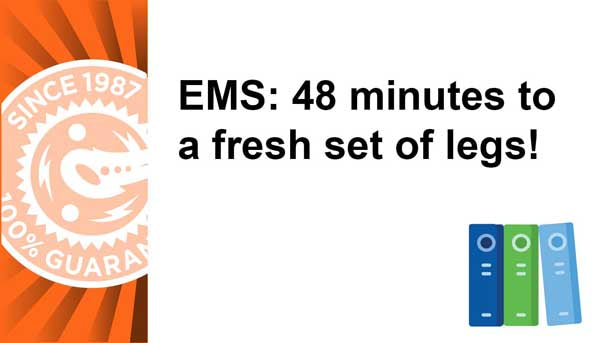
Having a sweet tooth could kill you.
By NANCY APPLETON, PH.D. AND G. N. JACOBS
No one wants to hear the word "cancer" spoken anywhere near them. Instinctively, we may think it's catching and we have to remind ourselves that it isn't contagious - at least not in the ordinary sense. The word cancer describes the process of the body's cells growing out of control and the disease that results. Research shows that even in healthy people some cells are continuously being damaged and mutated by the various natural stressors that exist in our environment, regardless of our diet and modern lifestyle. However, healthy people may never have to worry about getting cancer because their immune systems still work to eradicate all threats - usually before their next regularly scheduled doctor visit.
An unhealthy person may get cancer because he or she has suppressed his or her immune system with diet and distress. The cells that have been damaged by the environment will not have any checks and balances and will therefore continue to grow, so cancer may develop.
Sugar feeds cancer
Sugar has been linked to the cancer process ever since Dr. Otto Warburg won the 1931 Nobel Prize in Medicine for his work on cancer's energy cycle. He discovered that normal cells function best with oxygen as a catalyst for energy transfer, while abnormal cells transfer energy without oxygen. This oxygen-deficient cancer process is similar to how muscles create lactic acid after hard exercise, or how bacteria-like brewer's yeast converts sugars or plant fibers into alcohol, carbon dioxide, and water. All of these processes are sugar-dependent.
Warburg also described how a cancer causes the body to make sugars from proteins instead of carbohydrates or fat. This process, called glycogenesis, leads to the body wasting away because the body starves itself to feed the cancer. Additionally, the body must keep up with the expansion rate of the cancer cells, which is eight times faster than the expansion rate of normal cells.
There are other clues that sugar feeds cancer. It is no accident that positron emission tomography (PET) scans can be used to detect cancer by adding a slightly radioactive glucose solution to the bloodstream. The solution races directly to the cancer, and the radiation highlights the abnormal areas of the brain and other tissues. The various hospitals that perform PET scans explain that the brain, heart, and lungs consume copious amounts of sugar from the solution, leaving behind the radioactivity to measure any changes in these affected areas. But, the PET scan is also used to detect cancer anywhere in the body, so perhaps cancer consumes sugar as if it were going out of style.
Since the pancreas makes the insulin that helps us deal with the sugar in the bloodstream, this organ is a logical next step for exploring how sugar feeds cancer. Patients with pancreatic cancer have a survival rate of 4% in their fifth year after diagnosis. An 18-year study followed 180 women who had pancreatic cancer. The researchers took note of the glycemic index (GI) of the foods the patients ate. GI measures the rate at which an individual food raises blood sugar levels. Multiplying the GI by the total number of carbohydrates in the food and dividing that number by 100 equals the glycemic load (GL). The researchers cross-referenced the GI and GL with other factors in the patients lives, including smoking, exercise levels, history of diabetes, fructose intake, and BMI. These were the results:
- Overweight women (BMI over 25) with inactive lifestyles who had high- GL diets (over 20) were at the highest risk of pancreatic cancer.
- Women with active lifestyles who had high-GL diets were 53% more likely to develop pancreatic cancer than active women with low-GL diets.
- Women with active lifestyles and high fructose intake were 57% more likely to develop pancreatic cancer than active women who had low-GL diets.
In North Carolina, a survey was conducted to determine which foods and beverages cancer patients preferred. A total of 222 adult oncology patients participated in the survey while in an oncology center for treatment or in a doctor's office for an appointment. Foods requested by at least 50% included crackers, doughnuts, fruit cups, cookies, applesauce, and gelatin cups.
Other studies have shown the link between high sugar consumption and various types of cancer. At least one included results correlating to a high rate of type-2 diabetes with a similarly high rate of breast cancer in women. Other researchers, outside the U.S., found that high sucrose intake resulted in a slightly more than doubled risk of developing colon cancer. Glucose produced a risk slightly less than sucrose.
Sugar not only helps cancer get started, it also accelerates cancer growth. A mouse study of human breast cancer demonstrated that tumors are sensitive to blood glucose levels. Sixty-eight mice were injected with an aggressive strain of breast cancer and then fed diets to induce either high blood sugar (hyperglycemia), normal blood sugar (normoglycemia), or low blood sugar (hypoglycemia). There was a dose-dependent response that showed the lower the blood glucose, the greater the survival rate. After 70 days, 19 out of 20 hypoglycemic mice survived compared to 16 out of 24 normoglycemic mice and 8 out of 24 hyperglycemic mice. The authors of the study suggest that regulating sugar intake is key to slowing breast tumor growth.
Avoiding cancer
Cancer can be fought with diet and a positive outlook. If you are diagnosed with cancer, you should cut all sugar out of your diet, including fruit, in order to starve the tumor of all sugars. Whole fruit may be good for healthy people, but even the naturally-occurring sugar in whole fruit can feed a tumor.
Food Plan III [in the book Suicide by Sugar] includes removal of all possible sources of dietary sugar: sweets, fruit, and most importantly, soft drinks. Sugar feeds cancer, and getting and keeping the fasting blood glucose down below 100mg/ dL will help with cancer and many other diseases.
Also remember to ask for all your results when you have laboratory work done in a doctor's office. You are in charge of your health. You will get back blood tests with the levels of blood glucose that you can compare from time to time, as well as many other factors to use for comparison. You can also give your tests to another doctor to review. HN
Adapted from Suicide by Sugar by Nancy Appleton, Ph.D. and G.N. Jacobs, ©2009.
Square One Publishers.
Used by permission.
NEED TO KNOW
Hammer Nutrition highly recommends the book Suicide by Sugar - a startling look at our #1 national addiction by Nancy Appleton, Ph.D. and G. N. Jacobs; the 178-page paperback thoroughly documents the connection between the health crisis (cancer and much more) in America and high sugar consumption. It also provides an easy to follow lifestyle plan - complete with recipes - to guide you in reducing or eliminating sugar. Order Suicide by Sugar on the Hammer Nutrition website. Read more about the dangers of refined sugar on the Hammer Nutrition website, under the "Advanced Knowledge" section.











